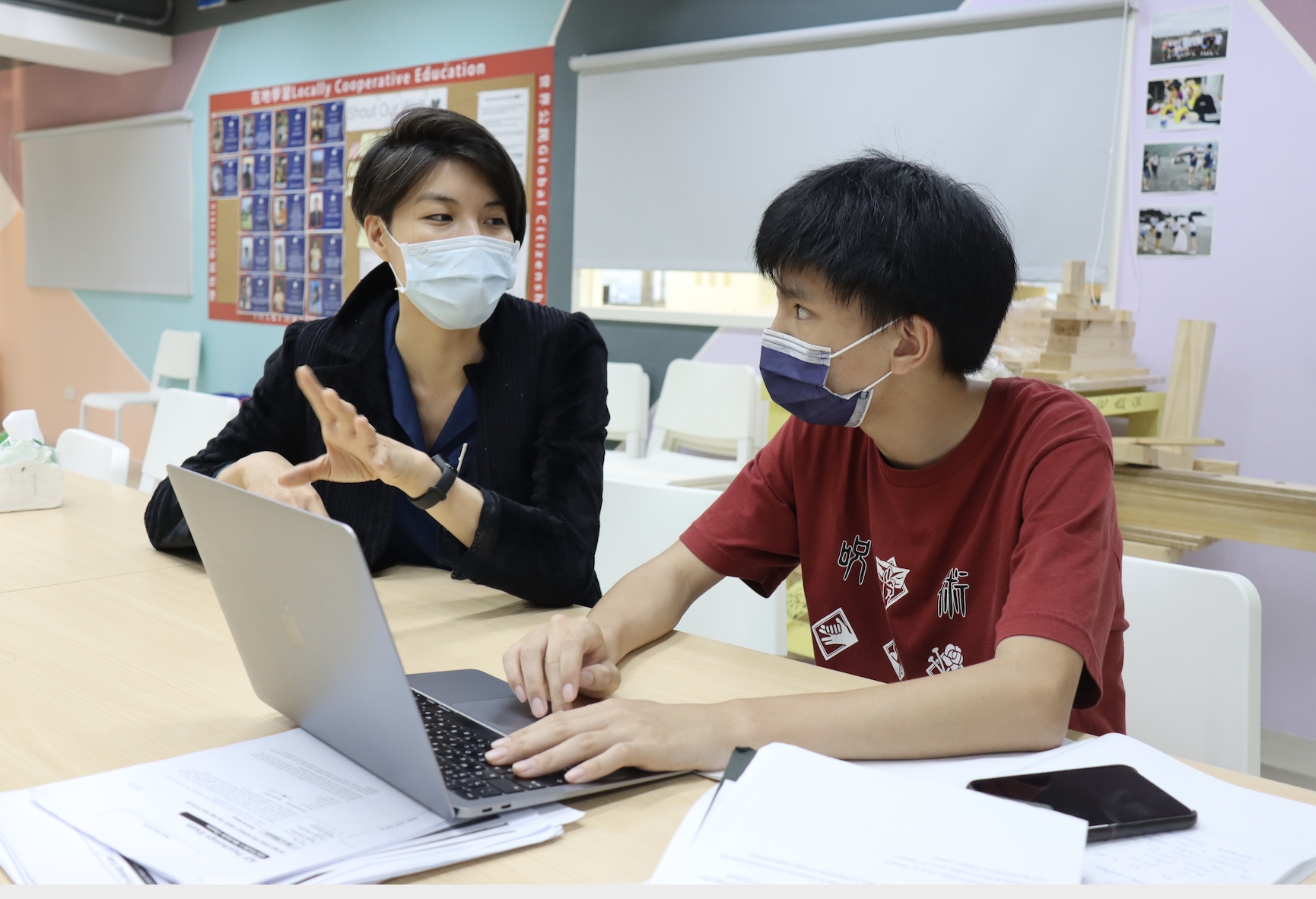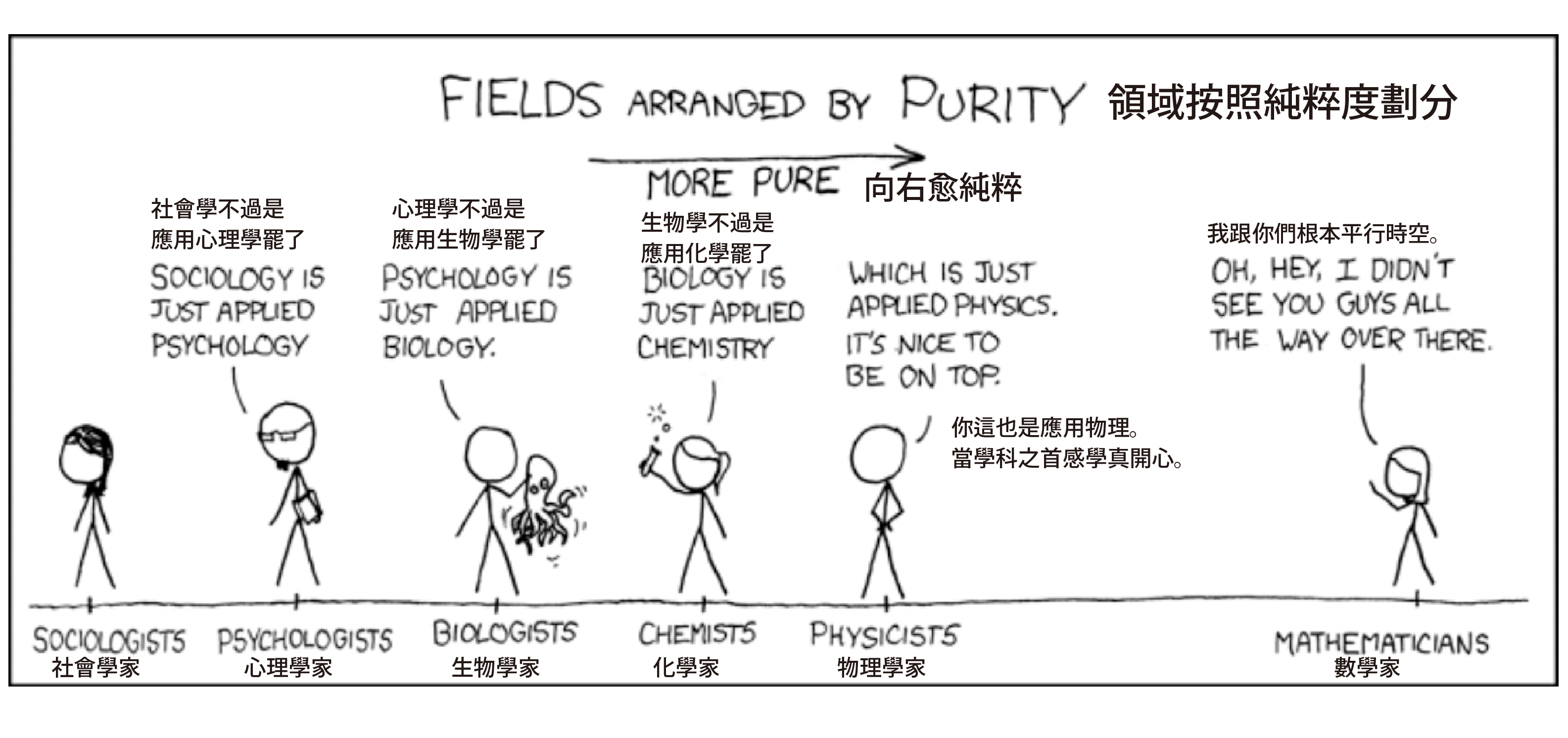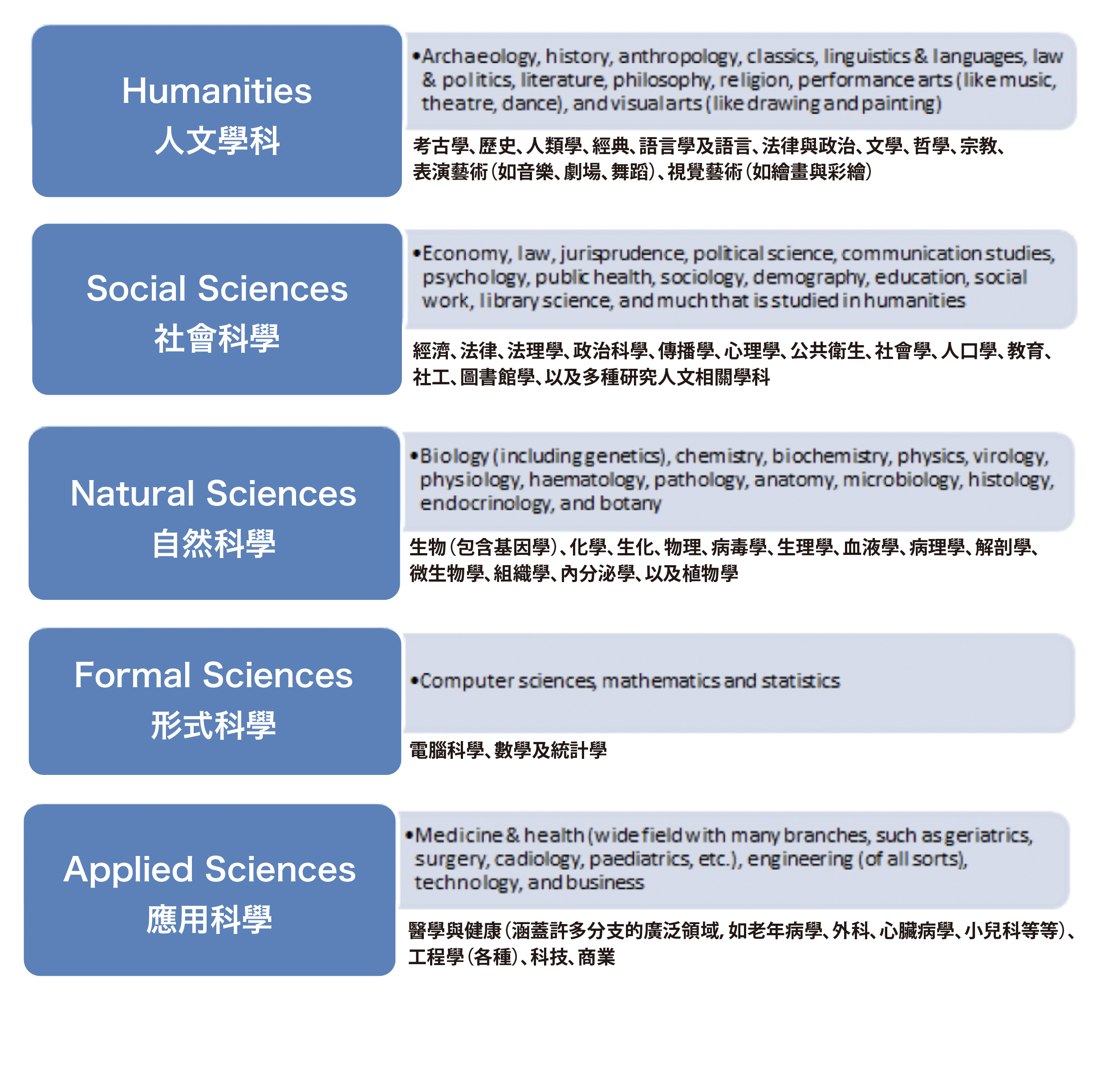
5 Questions to Ask Yourself when Choosing a Major for College
決定海外留學主修科目的5道問題
One of the most puzzling problems for VIS students is how to find an academic major or area of study in university.
VIS 同學們最疑惑的問題之一,就是決定大學裡的學習領域和主修科目。
1. When do I have to decide? 決定的時間點
It depends on where you want to study!
選擇大學主修科目的時間點,視地點而定!
For students aiming to study in the United States for university, you have more time to figure it out. Most US universities do not require students to declare their major until the end of your second year.
選擇就讀美國大學的同學,會有較充裕的時間考慮。選擇留學美國大學,在大二學期末才需要決定主修科目。
However, for the majority of students applying to Canadian, UK, Australian, Dutch, and Taiwanese universities, you need to pick your program of study during the application process. So, students should have a good idea of their potential major in Grade 11, so they can apply to suitable programs in Grade 12.
不過,留學加拿大、英國、澳洲、荷蘭以及待在台灣升學的大部份學生,在申請大學階段就要選擇科系。因此,同學在 11 年級就要有明確的科系志願,升上 12 年級才能申請適合的科系。
2. Should I choose my major based on what I’m already good at?
主修科系該選擇我的專長科目嗎?
You certainly can! 當然可以!
A student once told me that she was interested in majoring in English Language in college, because in her previous school, she got the highest marks in English class.
有同學曾經告訴我,她大學想要主修英語系,因為以前在學校成績最高的科目就是英文。
I asked her if that was still the case in VIS. Not necessarily!
我問她,在 VIS 上課的時候還是一樣嗎,她的答案倒不盡然!
While it’s important to consider your existing Skills and natural talent, do bear in mind that the options available to you in college far exceed the number of courses you may have been exposed to in high school.
升學時考慮自己已有的技能和天份,固然很重要,但一定要記得,大學提供的課程數量遠遠多過同學在高中會接觸的課程。
You might want to choose a major to strike a balance between what you know you are already good at (Skills), what you want to learn more about (Interests), and what you think is important in life (Values), and whether it suits you (Personality).
選擇主修的時候,可能要在你已有的能力(技能),以及你想多學習的事物 (興趣)之間尋找平衡。還得考量你認為人生最重要的事情(價值),以及適不適合你(個性)。
Here’s a really helpful graph to consider from NYU’s counseling department.
以下提供紐約大學升學顧問整理的圖表,對你應該很有幫助。

Source: https://counseling.steinhardt.nyu.edu/blog/choose-college-major/
那位想要主修英語系的同學,接著提到她想主修英語系,是因為覺得英語系可以提供她學習溝通工具(興趣)的機會。她認為在世界愈來愈全球化的情況下學英語很重要(價值)。雖然和外國人講英語會害羞,她還是滿喜歡用語言和其他人溝通的(個性)。
The student interested in majoring in English later went to say that she wanted to learn English because she felt that it could provide her with the tools to communicate (Interests). She thought it was important to learn English in an increasingly global world (Values). Although she felt shy speaking English to foreigners, she still enjoys using language to communicate with others (Personality).
3. Do I like solving problems that have ONLY one answer or multiple ways at looking at a solution?
我喜歡用「唯一」答案解決問題,或是喜歡多種方式的解決方案?
If you answered YES, I prefer solving problems with only one answer: This might indicate that you have a more mathematical / scientific brain (the right side of the comic below). You might enjoy solving for the most correct or most efficient answer to a problem. You might enjoy the certainty of numbers and facts.
如果你喜歡單一種答案,可能表示你的思考偏向數理思維(下列漫畫的右側)。遇到問題,你可能喜歡找到最佳解,也會喜歡數字與事實所帶來的確定感。
Sciences: Mathematics / Physics / Chemistry / Biology
理科:數學/物理/化學/生物

不過,如果你喜歡從不同角度看待問題,你可能對人文學科或社會科學比較感興趣。
However, if you prefer problems that can be looked at from different angles: You might be more interested in the humanities or social sciences.
Humanities: Literature / History / Philosophy
人文學科:文學/歷史/哲學
In the humanities, problems are complex, and multiple interpretations are possible as long as you can provide evidence from history or the text.
人文學科看待問題較複雜,只要可以從歷史或文字找到證據,就能有各種不同的解釋。
Social Sciences: Psychology, Sociology, Environmental Studies
社會科學:心理學、社會學、環境研究
In the social sciences, there are multiple ways of looking at a problem, but your answers are always grounded in scientific observation and research.
在社會科學領域裡,也有多種看待問題的方式,但是回應問題得要根據科學式的觀察和研究。
 高等教育不同學科(學習領域)之主題導引
高等教育不同學科(學習領域)之主題導引
4. Am I looking for a program that can prepare me for a specific career or not?
我要找的課程是能夠幫助我從事特定職業的嗎?
Are you certain that you want to pursue an education that can prepare you for a specific career?
你是否相當肯定,你想要的課程是可以幫助你進入特定職涯的?
Then congratulations. That might mean you already know you want to study, ie. a program like engineering, architecture, design, communications, journalism, business etc
是的話,就恭喜你了。這表示你已經知道你想要學習的課目,例如工程學課程、建築、設計、傳播、新聞學、商業等等。
For the majority of students, university is a good time to explore an existing interest and develop transferable skills in a certain discipline, whether or not it will lead to a career in that area.
對於大部分的同學來說,大學的時光是用來探索現有興趣、並在某門學科裡開發能轉移的技能,不管是否能夠帶領你進入該領域的職涯。
For example, studying a subject like psychology doesn’t necessarily mean you need to be a psychologist when you graduate! But it could mean that you would learn skills in understanding human behavior and emotions, cognitive development, and how memory works. All these skills can be helpful in any future career.
舉例來說,學習心理學這樣的學科,並不表示你畢業後就要當心理學家。但是你可以學得的技能是了解人類行為和情緒、認知發展以及記憶的運作,對於未來職涯是有幫助的。
NOTE: Do note that US universities do not offer undergraduate programs in pre-professional majors such as Law, or Medicine, and only a portion of them have Business majors.
請注意:美國大學學士課程裡的主修並無職前相關的學科,例如法律、醫學,也只有一少部分的商科主修。
5. What do I already enjoy doing in my free time?
我閒暇時的興趣是什麼?
In my previous job, I met a student who loved playing the Tetris video game. Her mom complained about how she played video games instead of doing her homework.
我在前一份工作中,碰到一個喜歡玩俄羅斯方塊的學生。她媽媽老是在抱怨她一直在玩電動,不做功課。
So for her independent research project, the student did a controlled study, involving her classmates as subjects, where she measured the impact on playing Tetris on short-term memory and recall. She discovered that amongst her subjects, playing Tetris and having an increased memory were correlated.
所以在她的獨立研究專題裡,這個學生做了一個對照研究,把自己的同學當作實驗對象,測量玩俄羅斯方塊對於短期記憶跟回想的影響。她從實驗對象裡面發現,玩俄羅斯方塊和增進記憶力是有正相關的。
After she concluded the results of her study, her mom let her play video games. This student went on to study Mathematics in CalTech.
她得出這結論後,她媽媽就讓她繼續打電動了。這個學生後來去CalTech數學系深造。
This story tells us, sometimes what you love doing outside of school can be an indication of what you’re naturally passionate about!
這故事告訴我們,你喜愛的課外活動,也可能代表是你天生有熱情的事物!
…………………………
Once I’ve asked myself these questions, what do I do next?
這些問題都問過自己了以後,下一步該做什麼?
Next Steps:
接下來的步驟:
1. Take a Quiz
做以下測驗
Take this Quiz from the University of Alberta to find a potential major
請做這個University of Alberta 的小測驗,可以幫助你找到可能的主修科目
https://apps.admissions.ualberta.ca/programs/
2. Use BridgeU
使用BridgeU
- Log on to your personalized VIS account on BridgeU and fill out the Profile Builder
登入到BridgeU 針對 VIS 學生客製個人設定的帳號,填寫個人資料產生器
3. Find a Mentor
找到導師
- Talk with parents, teachers, college counselors, university students, and other adults who have more experience in your target major or can help you explore further.
找人談談,像是家長、老師、升學輔導老師、大學學生還有其他在你目標主修領域有經驗、或是可以幫助你的大人。
- Schedule an appointment with Rosalyn, the school college counselor.
找學校的升學顧問 Rosalyn 約會面時間直接談談。
If you would like to discuss college options further, please make an appointment with our college counselor Rosalyn Shih ( collegecounseling@vis.tp.edu.tw ) to find out more.
如果VIS同學們想進一步討論如何選擇海外的大學,請與VIS的升學顧問 Miss Rosalyn Shih ( collegecounseling@vis.tp.edu.tw ) 預約晤談以了解更多資訊。
 VIS 國際實驗教育 高中部/國中部/小學部 G05~G12
VIS 國際實驗教育 高中部/國中部/小學部 G05~G12
